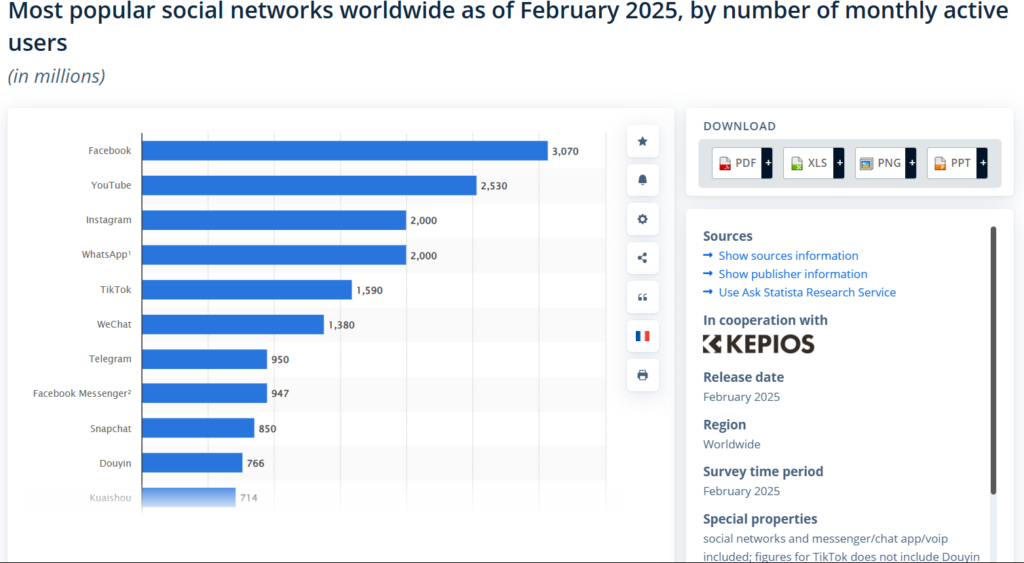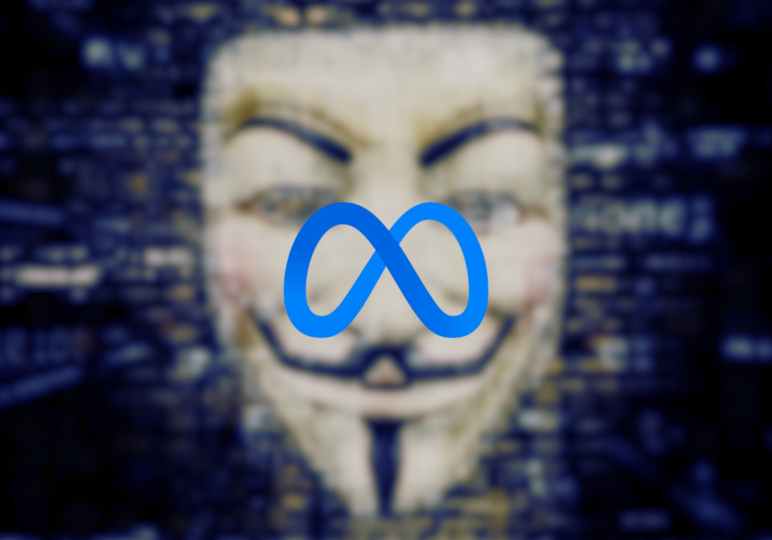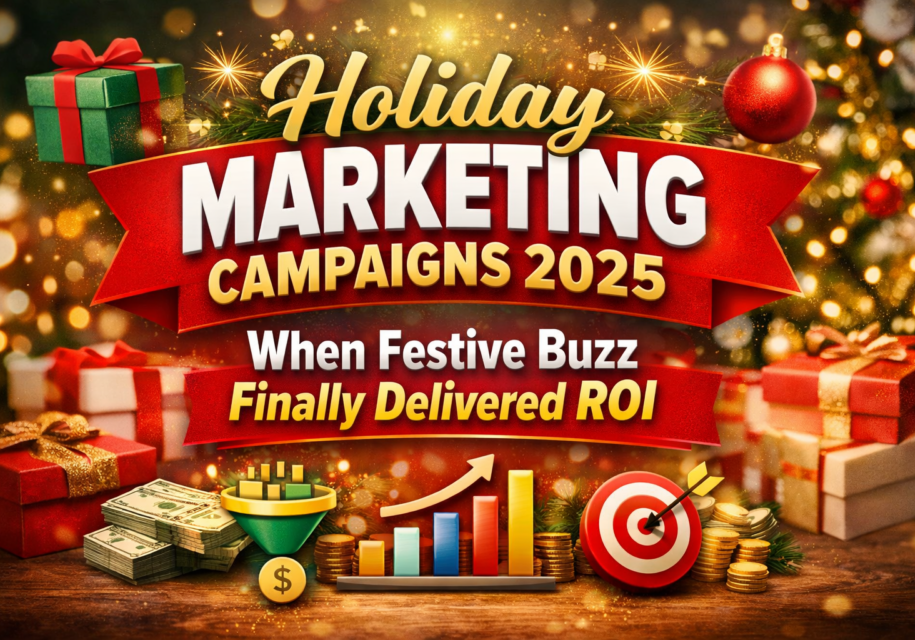
A “Friendless Facebook”: Is the Facebook Existential Crisis Real or Just an Illusion?
It has been four years since I last reactivated my Facebook account. The Facebook existential crisis was the core reason behind my decision. Ads, random videos, and strangers I had never followed or heard of had taken over my feed.
Hundreds of thousands of users have successfully avoided the app. Reddit threads and internet articles only confirmed my belief that Facebook was fading. However, the growing number of users year after year made me pause. Was I missing something? Was my perception built on an illusion? If nobody I know is using Facebook, why is it still growing? Why is it still considered popular?
Curious to break the enigma, I dug deeper. I found some surprising truths that challenge everything we know about Facebook’s so-called decline.
You should hang around longer because this story isn’t what you think.
Meta is trying to define what Facebook is
OG Facebook was the place to check in on family, update statuses, find old friends, and chat. Over time, it grew into something more—local artist groups, school reunions, niche communities, and even bakery fan pages.
But fast-forward to now, and Facebook feels flooded. AI-generated images, random videos, political rants, and relentless ads have taken over the feed. What was once a friendly digital living room has become a void: a friendless, noisy space in which no one wants to hang out.
So what happened?
While cross-examined in the antitrust case, Tom Alison, Head of Facebook, dropped some raw truth about the Facebook existential crisis.
He admitted, “Not everyone who joins Facebook these days does so to find their friends on the service.”
He explained that users don’t always know what they want. Just because surveys say people want to see more friend content doesn’t mean that’s what keeps them engaged.
Subscribe to our bi-weekly newsletter
Get the latest trends, insights, and strategies delivered straight to your inbox.
The FTC fired back with a fair point: Why does Facebook still promote the message that it helps users connect with friends and family?
Alison responded, “Just because something is on our website doesn’t mean that it’s completely up to date,” adding that Facebook is redefining how it describes itself.
Basically, Meta gaslights users into thinking they’re in the right place, but they’re just not using it correctly.
This made me ask the next big question: What’s really behind Facebook’s increasing active user numbers every year?

There are four core reasons behind what many interpret as a Facebook existential crisis:
Zombie users and “soft” activity
Many people haven’t actively used Facebook in years, but haven’t deleted their accounts either.
These dormant or “zombie” users still count in Facebook’s Monthly Active Users (MAUs) if they log in even passively—for example, checking an old message, using Facebook Login for another app, or clicking on a notification.
You don’t need to scroll your feed or post selfies to be considered “active.” This murky definition helps inflate user metrics and obscures the true scale of the Facebook existential crisis—users are technically there, but socially absent.
The login infrastructure is rigged
Facebook Login is still widely used across the internet. Many websites, games, services, and even marketing tools let users log in using their Facebook accounts, keeping the ecosystem alive.
Some people don’t even remember their actual email password logins for these platforms anymore—they just use Facebook. That need alone forces them to keep the account.
Marketers also keep Facebook accounts active to run or manage ads, even if they don’t use the platform socially anymore. Business Suite, ad analytics, and cross-posting with Instagram require Facebook logins.
AI and algorithmic boost
Meta has been quietly rolling out many AI-powered content recommendations on Facebook.
The feed is now less about friends and more like TikTok—random, algorithmic posts from pages or groups you don’t follow. These changes are designed to keep users scrolling, even if they don’t know who they’re scrolling past.
The shift has helped retain some user attention, especially among older users who aren’t as deep into TikTok or Snapchat.
Global growth is real in non-Western markets
While you and your friends may have ghosted Facebook, the platform is growing in regions like India, the Philippines, parts of Africa, and Southeast Asia.
Affordable mobile phones and data plans are helping drive growth there. Facebook Lite, Marketplace, and WhatsApp integrations keep people coming.
Facebook is not a social playground anymore, but a utility
Facebook isn’t where people go to have fun anymore. It’s where they get things done. Community groups, event invites, babysitter referrals, and secondhand shopping.
These days, people use Facebook not to connect with friends but to use its functions.
Marketplace, in particular, has taken center stage.
It’s basically the Craigslist of the 2020s but with filters, profiles, and location intelligence. Whether you’re selling a used treadmill, flipping furniture, or trying to find a last-minute iPhone charger, Facebook Marketplace has become the go-to digital flea market. In smaller towns and even big cities, it’s often more effective than eBay or OLX. People check it daily, not for newsfeed dopamine but for deals.
Then there are the niche groups, arguably the last social lifeline on the platform. These groups are hyper-specific and incredibly active, ranging from local dog parks and parenting hacks to digital art critiques and budget travel circles. These aren’t just passive followings.
These are micro-communities of people solving real problems and sharing real value.
And now, Meta is trying to pull users deeper into the creator economy. Recent updates on Facebook allow anyone to toggle their profile into a digital creator mode, opening access to content insights, monetization tips, and tools to grow a following.
It’s part of Meta’s broader effort to keep pace with TikTok and YouTube by encouraging users to post more Reels, engage more, and stay longer.
Now, regarding the Facebook existential crisis, I am not sure how to go about it.
Facebook definitely isn’t dead. It’s just not what it used to be. It’s no longer about status updates and pokes. It’s about solving daily problems, selling second-hand sofas, and finding niche advice. And, if Meta has its way, it is about turning everyday users into small-time creators.
Cut to the chase
Facebook has billions of users, yet many claim they no longer use it as they once did. The dread of a Facebook existential crisis; does it truly exist, or is it just a shared illusion among everyday users? What’s the truth?


